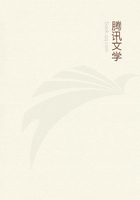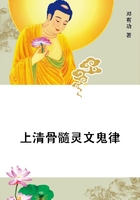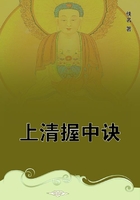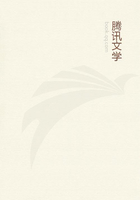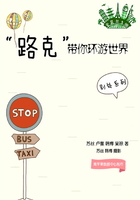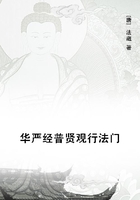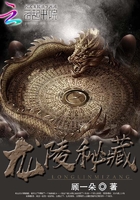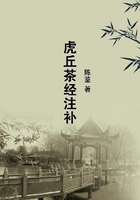We may instance the proposition, “Whatsoever is, is; and It is impossible for the same thing to be and not to be; which of all others I think have the most allowed title to innate.” But this proposition does not hold good for the Notion; there is nothing either in heaven or earth which does not contain Being and non-Being. Many men, “All children and idiots,” says Locke, “have not the least apprehension of these propositions.” “No proposition can be said to be in the mind which it never yet knew, which it was never yet conscious of. . . . 'Tis usually answered, That all men know and assent to them” (the propositions) “when they come to the use of reason. . . . If it be meant that the use of reason assists us in the knowledge of these maxims, it would prove them not to be innate.” Reason is said to be the deriving from principles already known unknown truths. How then should the application of reason be required to discover supposed innate principles? This is a weak objection, for it assumes that by innate ideas we understand those which man possesses in consciousness as immediately present. But development, in consciousness is something altogether different from any inherent determination of reason, and therefore the expression innate idea is undoubtedly quite wrong. Innate principles must be found “clearest and most perspicuous nearest the fountain, in children and illiterate people, who have received least impression from foreign opinion.” Locke gives further reasons of a similar nature, more especially employing those which are of a practical kind - the diversity in moral judgments, the case of those who are utterly wicked and depraved, devoid of sense of right or conscience.(3)b. In the second book Locke goes on to the next stage, to the origin of ideas, and seeks to demonstrate this process from experience - this is the main object of his efforts. The reason that the positive point of view which he opposes to any derivation from within, is so false, is that he derives his conceptions only from outside and thus maintains Being for-another, while he quite neglects the implicit. He says: “Every man being conscious to himself, that he thinks; and that which his mind is applied about, while thinking, being the ideas that are there; 'tis past doubt, that men have in their minds several ideas, such as those expressed in the words, whiteness, hardness, sweetness, thinking, motion, man, elephant, army, drunkenness, and others.” Idea here signifies both the ordinary conception and thought; we understand something quite different by the word idea. “It is in the first place then to be inquired, how he comes by them” (these ideas)? Innate ideas have already been refuted. “Let us then suppose the mind to be, as we say, white paper, void of all characters, without any ideas; how comes it to be furnished? . . . To this I answer in a word, from Experience: in that all our knowledge is founded.”(4)As to the question in point we must in the first place say that it is true that man commences with experience if he desires to arrive at thought. Everything is experienced, not merely what is sensuous, but also what excites and stimulates my mind. Consciousness thus undoubtedly obtains all conceptions and Notions from experience and in experience; the only question is what we understand by experience. In a usual way when this is spoken of the idea of nothing particular is conveyed; we speak of it as of something quite well known. But experience is nothing more than the form of objectivity; to say that it is something which is in consciousness means that it has objective form for consciousness or that consciousness experiences it, it sees it as an objective.
Experience thus signifies immediate knowledge, perception, i.e., I myself must have and be something, and the consciousness of what I have and am is experience. Now there is no question as to this, that whatever we know, of whatever kind it may be, must be experienced, that rests in the conception of the thing. It is absurd to say that one knows anything which is not in experience.
I undoubtedly know men, for instance, from experience, without requiring to have seen them all, for I have, as man, activity and will, a consciousness respecting what I am and what others are.
The rational exists, i.e., it is as an existent for consciousness, or this last experiences it; it must be seen and heard, it must be there or have been there as a phenomenon in the world. This connection of universal with objective is however in the second place not the only form, that of the implicit is likewise absolute and essential - that is, the apprehension of what is experienced or the abrogation of this apparent other-being and the knowledge of the necessity of the thing through itself. It is now quite a matter of indifference whether anything is accepted as something experienced, as a succession of empirical ideas, if one may so say, or conceptions; or whether the succession is a succession of thoughts, i.e., implicitly existent.
Locke treats of the various kinds of these ideas imperfectly and empirically merely.
According to Locke simple ideas arise, partly from outward, and partly from inward experience.
For experiences, he says, are in the first place sensations; the other side is reflection, the inward determinations of consciousness.(5) From sensation, from the organs of sight for instance, the conceptions of colour, light, etc., arise; there further arises from outward experience the idea of impenetrability, of figure, rest, motion and such like. From reflections come the ideas of faith, doubt, judgment, reasoning, thinking, willing, etc.; from both combined, pleasure, pain, etc. This is a very commonplace account of the matter.


